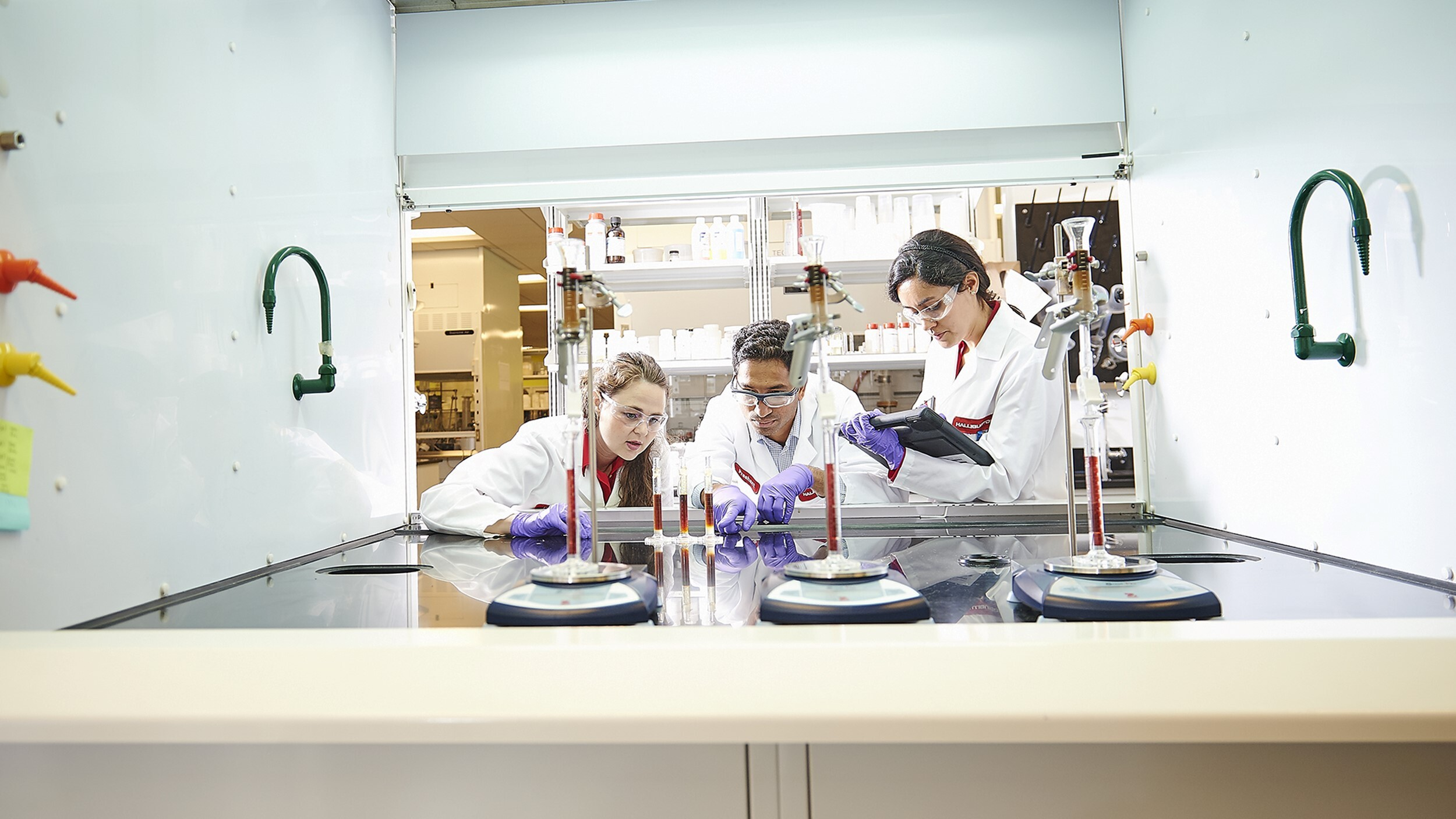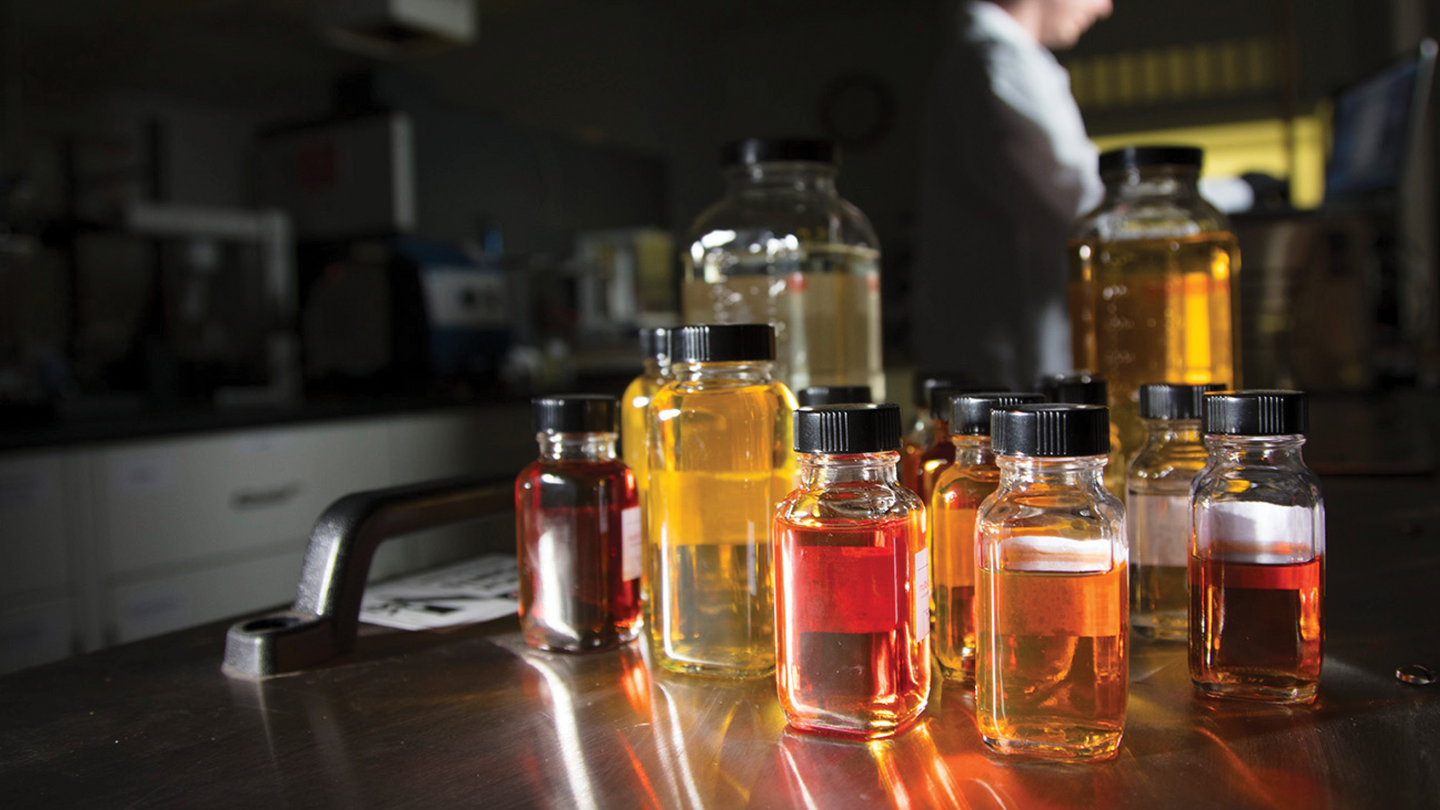 Search
Search
 Search
Search

An advanced chemical testing process that improves stimulation performance by optimizing additive selection and concentrations based on reservoir needs
Talk to an expertHydraulic fracturing is complex. It requires a multistage process that involves numerous stimulation chemicals designed to enhance hydrocarbon production. Many factors can impact the success or failure of these fluid additives. The optimal choice for an additive depends on its interaction with frac fluids, formation water, mineralogy, oil, and the proppant being used.
With the RockPerm fracturing service, you can properly select fluids that:
RockPerm Fracturing Service
Emulsion break and column-flow testing
Compatibility and performance
Multi-testing protocols
Enhanced hydrocarbon production
The RockPerm suite integrates specialized laboratory testing with chemical evaluation to help improve well performance. The RockPerm portfolio consists of three services: RockPerm Oil, RockPerm Gas, and RockPerm Clay Control services.
For each service, our specialized technicians perform extensive local laboratory testing of formation fluids, cuttings, and fracturing fluids. The results of these tests allow our experts to recommend the optimal fluid additive and concentration specific to your reservoir.
The RockPerm Oil service consists of multiple screening methods including emulsion break and column flow testing. Because frac water can be inconsistent, Halliburton’s engineered chemistries aid in preventing problematic emulsions that negatively impact fracture performance and production. This test is designed to evaluate the mixing of a customer’s oil with frac water for compatibility.
We perform a proprietary column flow test to identify flow-enhancing aids to improve production. With this service, we can determine optimal chemistries and concentrations based on specific well parameters.
To avoid incompatible gas-fluid interactions, our RockPerm Gas service assesses the safe connectivity between gases and other fluids, such as liquids or solids. This helps ensure the efficiency of the operation. Samples are selected and analyzed using various techniques and visual inspection. We look for adverse effects caused by gas-fluid interactions that include degradation, swelling, and embrittlement.
We perform a column flow test to identify a surfactant that will improve fluid flow through a customer’s reservoir. We also test the proppant pack to prevent any impact on production. This test provides valuable information about fluid behavior and displacement efficiency within a porous medium. Without this comprehensive visual test, there is no other way of measuring improvement from a lab perspective.
Clay swelling and damage can occur in the reservoir due to interactions between clay minerals and the fluids present. The RockPerm Clay Control service uses a dual-protocol testing approach to evaluate the potential for clay swelling and conductivity damage caused by clay destabilization.
Our swelling and mechanical stability tests determine which additives best prevent clay-associated formation damage caused by clay fracture face destabilization. The results of the tests are used to determine the top-performing products from Halliburton’s suite of clay control technologies. The best-performing products are tested to optimize treatment dosage recommendations for maximum protection during and after the fracture treatment, which minimizes fracture and reservoir flow-capacity damage.
